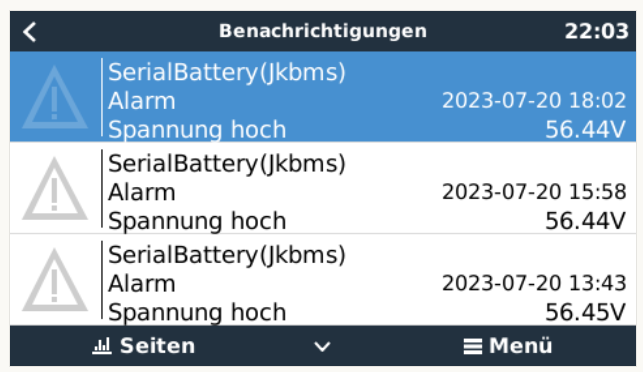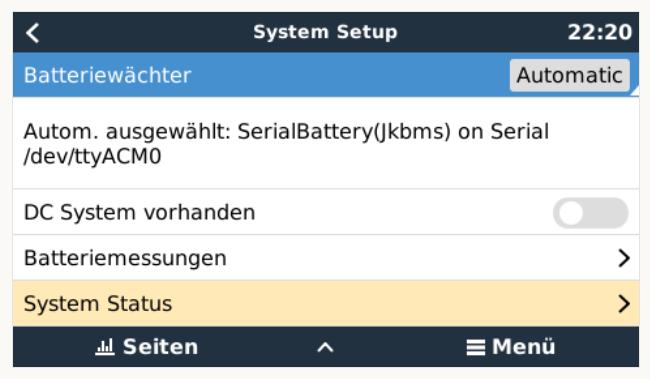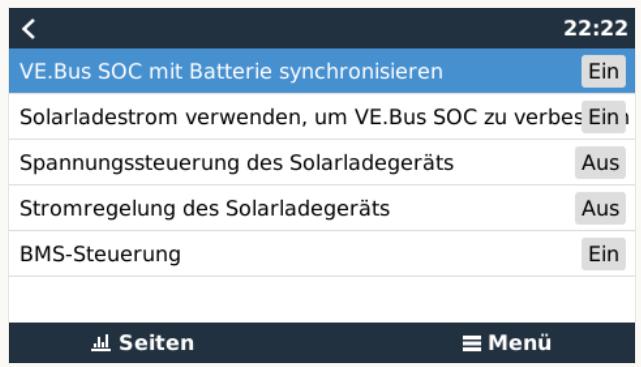Hello,
I'am using a MPII 48/3000/35-32 connected via a MK3 USB interface to a Rasperrry 2B VenusOS 2.94 as controller. I'm using the ESS assistant with a 16s 230Ah EVE Battery. The BMS is a JKBMS, connected to the Rasperrry VenusOS via 2 converters (? -> RS85 and RS485 -> USB). Serial battery driver 0.14.3 is installed, and I think I've understand how to limit charge current via SOC and cell voltages. VRM is not activated.
Generally, everything works fine so far.
A minor issue is, that I lowered the overvoltage protection to 3.53 V in the BMS, and limited the charge current to 0 Amps by serial battery driver (utils.py) at 3.5 V. This is to let the cell voltage regulary bounce against overvoltage protection in BMS, which leads reliable to a SOC of 99%. If there's a greater gap, SOC does not reach 99% and drifts down. So I regularly get overvoltage alarms, but this seems to be no problem until now.
My question is, what happens, if the BMS fails in the way, that it measures to low voltages. Or if it fails in cutting off the battery from the MPII in case of overvoltage. In the MPII datasheet I could not find the maximum voltage it can put on the battery. There's an absorbtion voltage of 57.6 V, but as some guys build 18s batteries, maximum voltage may exceed 65 V, I'm not sure.
The szenario, that a BMS fails is real, it happend to a friend of mine. Ok, he charged the battery with a china solar charger, not with a MPII. The solar charger exposed the battery to the voltage of the solar panels, which is much to high, and the BMS did not cut off.
To put the question in other words: When the MPII listens to the BMS (concerning voltage, SOC, current limits), does it still also listens to the voltage it measures on its own ? This would be some kind of redundancy, which would calm my sorrow.
regards
Pfalzkind



